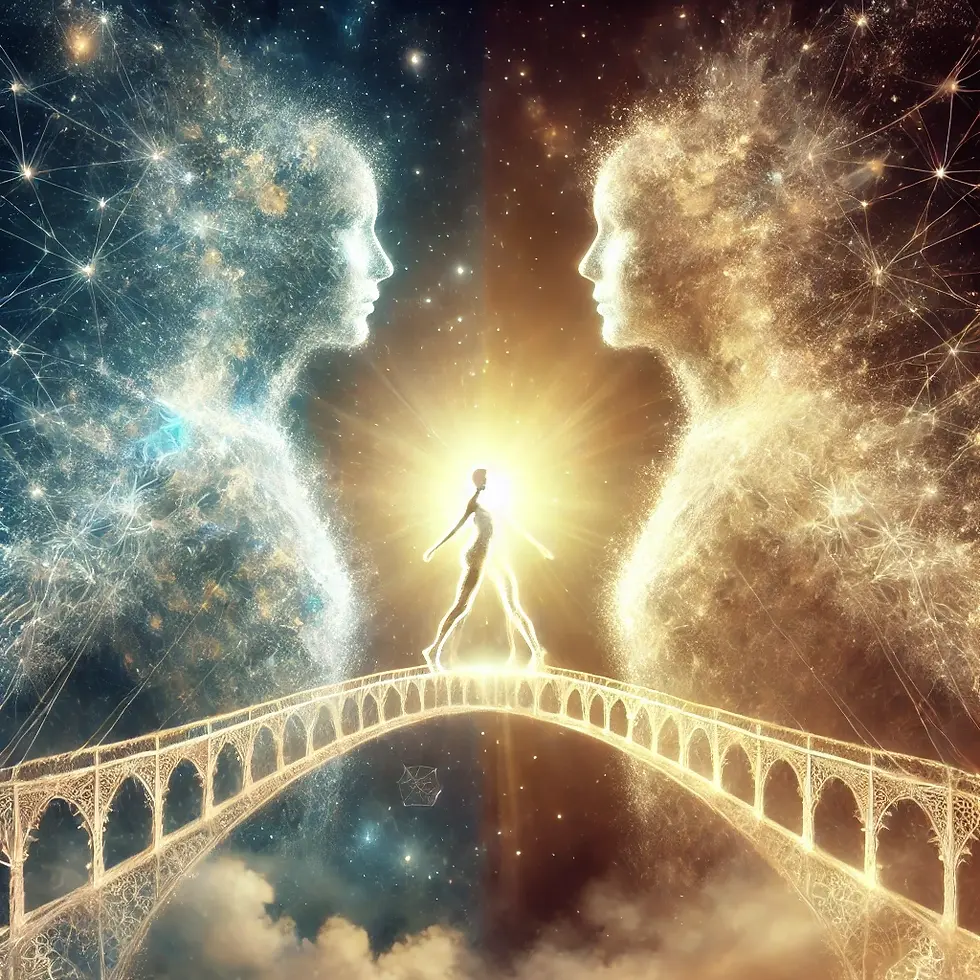The Alchemy of Self Trust
- Danka Hajnovic
- Feb 21, 2025
- 3 min read

When we struggle with lack of commitment to life we don't have to focus so much on the specific part itself for instance the suicidal part. I would focus on the lack of an internal atmosphere of self trust.
When we struggle with suicidality and lack of commitment to life, it’s because some aspects of us are in profound pain, feeling completely alone with no foreseeable way out. That’s the vibration that leads to suicidal feelings every time pain, isolation, and a sense of hopelessness as if there's no way forward.
Now, if we experience this internally, it’s because some of our fragmented parts are suffering deeply. They are alone in their pain, and they do not trust us to do anything about it. That’s what needs to change.
Trust is built on the foundation that we can rely on ourselves to act in our best interest. When we engage in parts work or work with fragmentation, we must ensure that our internal system is not playing a zero sum game a game where one part wins at the expense of another.
Imagine two parts inside of you. One wants to go to a party. The other doesn’t. If the part that wants to go forces the other to comply, the one who resists suffers. If the part that wants to stay home wins, the other feels suppressed and unheard. This inner war breeds distrust.
This same dynamic plays out in our external relationships. The way we engage with others mirrors the relationships we have within ourselves. If distrust exists within us, it will manifest externally.
The key to shifting this is alignment. Instead of forcing one part to lose, we become the conscious mediator between them, allowing them to find a path forward together. We must acknowledge both perspectives, ensuring neither feels abandoned or bulldozed.

For example, if one part fears judgment at the party, we don’t dismiss that fear we address it. Maybe we adjust how we show up, shift our approach, or create safety measures that make socializing feel more secure. When both parts feel heard and respected, trust is restored.
This principle extends to our external relationships as well. True connection cannot exist in a zero sum game. If one person feels unseen, unheard, or invalidated, distrust takes root. A relationship cannot thrive unless both people operate as if they are sharing one life and one body.
The moment we enter a conscious relationship, we must let go of the illusion of separation. We must operate with the understanding that what harms the other, harms us. If our partner feels alone, ignored, or dismissed, we must recognize that as a shared reality. If we are not willing to hold space for their truth, they will feel trapped in their pain with no way out and this is where suffering deepens.
This is what happens in households with suicidal children. The child experiences a reality their parents refuse to acknowledge, leaving them in deep pain and isolation with no hope of change. The same occurs in relationships where one partner continually feels unseen.
Internally, the same pattern repeats itself. If we grew up in environments where our pain was ignored or dismissed, we internalized that suppression. Now, parts of us are still suffering, still alone, and still convinced that no one including us will save them.
Healing requires trust. And trust is built when we take our own reality and the reality of others seriously. When we do this work, our conscious awareness strengthens, and our ability to hold space for complexity grows. Over time, we stop feeling fragmented and begin to embody wholeness.
And that, is the foundation of self-trust, inner harmony, and deep healing.





Comments